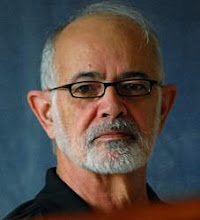Human events unfold within a limited set of possibilities... Jarred Shanahan
Orientation: Let's first remember that Turkey is a NATO ally. And it has never forgotten the Ottoman Empire. Nearly half the country is Westernized. Nearly.
Schadenfreude: Germany, which has drawn a strange vicarious pleasure from watching the Mediterranean EU nations crumble, is slowly harvesting the inevitable rewards. According to the IMF, German GDP will grow by just 0.3% this year – if they're lucky. That's what happens when you bankrupt your customers; they don't buy your goods.
Good News/Bad News: The Good News is that US manufacturing makes up only 12% of the US economy. The Bad News is that that 12% is shrinking. That's okay, we're a service economy and can get by taking in each other's laundry. For a while longer.
Option Play: A German think tank thinks now would be a good time to adopt a new climate goal, because the 2ºC goal has become unrealistic and unachievable, and has lost even its symbolic value. Analysis shows that even if the signatory nations actually intended to meet the goals set forth in UN negotiations – which none do – those targets are insufficient to keep the temperature rise to 2ºC . Only the most drastic steps, taken now, have any possibility of limiting global warming to 4ºC by 2100, and there is absolutely no possibility of such steps being taken.
Open Wide: The IMF has concluded that oil production will decline and that the demand – or at least desire – for oil will not. But the limiting factor to production (and use) is not oil in the ground. There's lots of that in a variety of awkward places and awkward forms. The sad fact is that we cannot afford to extract it. The non-OPEC marginal cost of production was $104.50 a barrel in 2012, up 13% over 2011. And western economies cannot afford that, much less the inevitable increases the costs of extraction. Expect this to eventually become part of the next financial crash.
It's A PIP! Public-Private Infrastructure Partnerships is the current terminology to hide privatization - handing taxpayer money and public assets over to private investors. The sales pitch is that private entrepreneurs can operate things at a profit better than governments can just breaking even. It always results in lower pay for the employees, poorer service to the community and a more rapid deterioration of the infrastructure. Always. It is, not incidentally, another way Republicans have found to chip away at public service unions.
Nuance:Maxoud Barzani, president of the autonomous Kurdish region in Iraq, says that the central government in Baghdad must accept “a new form of relations” with Iraqi Kurdistan. Mainly as an independent nation, one suspects.
Clarification: When politicians, mainly Republicans, talk about converting a federal program (usually one of the social safety nets) into a block grant, what they intend to do is to take the current spending, reduce it by a sizeable amount and divide it out to the states by some mostly mysterious formula. The states then theoretically use the money for the same, or vaguely similar programs. The main thing to remember is that the amount of money set aside will initially be less, and it will never be increased. As time goes by, at the state level the money will be diverted to pet projects and favored communities, while inflation diminishes the effective amount available. All of which is a long and roundabout way of killing social programs.
The Parting Shot:
Just add trout.


1 comment:
PIP: Most importantly, most public entities that will, and they most certainly will be in this kleptocracy, are monopolies. Just wait until Exelon or Duke Energy gets their hands on TVA.
Post a Comment